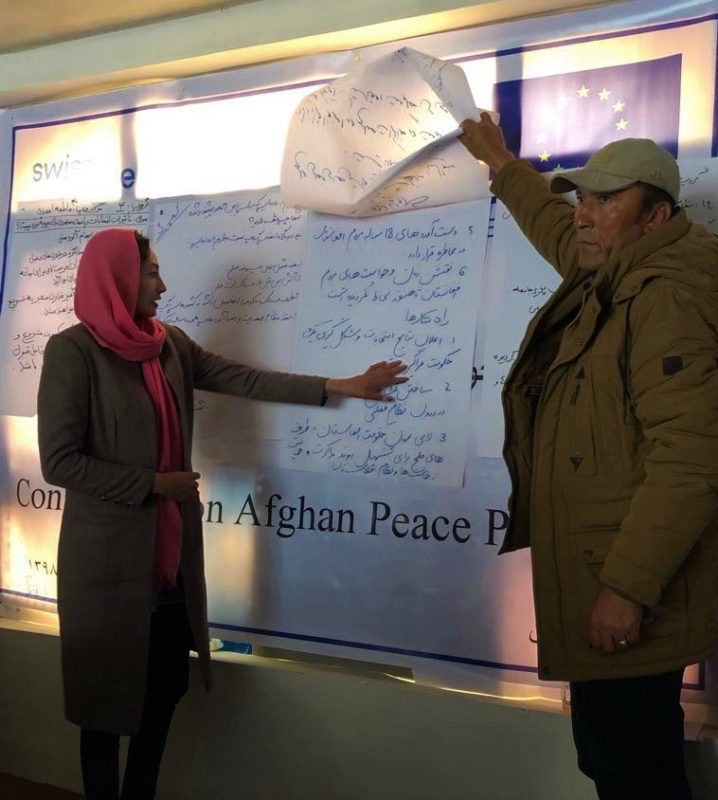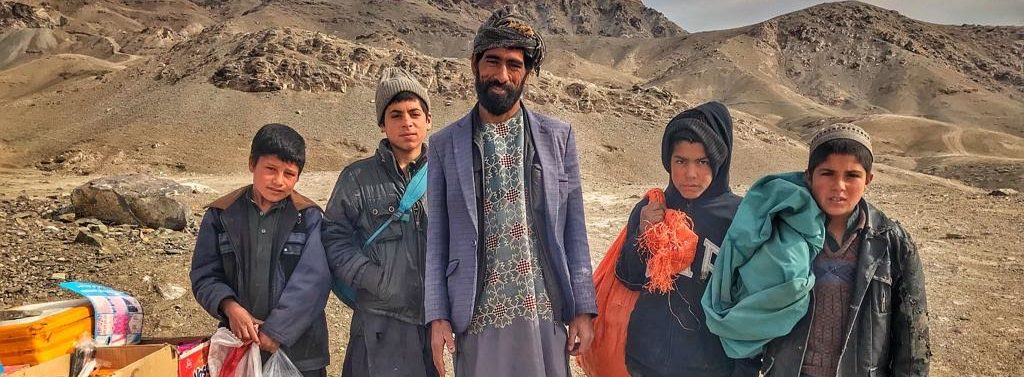
Shaping Conflict Resolution
The European Institute of Peace is contributing to shaping conflict resolution.
Our activities range from facilitating local reconciliation to support for mediators, from building capacity of negotiators to high level, quiet consultations. The work we do is demand driven and informed by careful analysis, including of the political economy and other drivers of instability.
Our work is guided by international law, human rights and a commitment to inclusivity and sustainability – essential if conflict resolution is to result in lasting peace.
Structurally, the Institute’s programme work is divided under two units enabling it to operate through both top-down and bottom-up approaches to enhance the prospects of sustainable peace. The two units work together wherever possible in joint teams, affording custom designed expertise across a range of issues.
A comprehensive approach to peace
Engagement, Dialogue and Process Design
The Engagement, Dialogue and Process Design Unit (EDP) works top-down, at politically delicate levels with those who closely support or are themselves directly involved in peace talks. We help develop strategies for how parties can engage with one another, offer expertise on process design and provide other types of mediation support. One of our strengths is our ability to bring people together in discreet political dialogue.
Our work focuses on a range of national and regional conflict dynamics, specific policy challenges, or ways to improve peace process design. A red thread running through it is that we target and support those who can effect change at the higher level, whether as negotiators, mediators, policy-makers or influential advisors.
The Engagement, Dialogue and Process Design Unit comprises of two core areas of work:
Political Dialogue Facilitation
Political Dialogue Facilitation is one of the cornerstones of the Institute’s work. Drawing upon solid and innovative assessments and analysis, the Institute secures access to and engages with state and non-state actors. We work discreetly with conflict parties, stakeholders, European and international actors to create space for dialogue, shape the best way forward and to facilitate conversations to resolve political disputes.
Mediation & Process Support
Through Mediation and Process Support the Institute aims to enhance the chances of reaching consequential agreements. Mediation is a cost-effective tool to resolve armed conflict; it requires substantive support to be effective and for the results to be sustainable. Our Mediation and Process Support work encompasses a range of activities, not least supporting mediators in delivering on their mandates and negotiators to plan and achieve results in formal mediation processes.
In support, EDP covers four complementary programmatic envelopes:
Comprehensive Peace Support
The Comprehensive Peace Support envelope brings key actors together in specific conflict settings to collectively pursue an integrated approach based on a common analysis and understanding of the conflict and how it should be addressed. This includes input on how to manage a comprehensive peace process and advice on which actors to include, at which stage, and in which capacity, with the objective of ensuring broad-based buy-in and support for collective action, for example through implementation of the Triple Nexus in conflict-affected countries
Sustainable Process Design
The Sustainable Process Design envelope works as cross-cutting support function to the Institute’s global work, providing advice on process design to both mediation actors as well as governments looking to move their own processes forward. The aim is to help make peace processes around the world more inclusive and sustainable, acknowledging that complex and sensitive conflict situations demand a strong design as well as efficient and strategic support in order to be understood and resolved.
European Policy Support
The European Policy Support envelope brings European actors together to derive joint peacemaking strategies and boost existing policies. The aim is to support coherent and smart policymaking and political action, not watered down by the lowest common denominators, and to support our partners implementing strategies through joint roadmaps. By convening key EU/EUMS/European actors in confidential, trusted spaces we are able to approach politically sensitive issues and foster decision making in challenging conflict settings.
Early Assessment and Action
The Early Assessment and Action envelope puts standing analysis and early response capacities at the service of those European states aiming to take on peacemaking opportunities in pre-violent conflict settings. The Institute monitors and assesses a range of scenarios where formal diplomacy cannot (or decides not to) engage, develops action-focused, policy-related analysis to inform possible interventions, and designs early response and engagement strategies to be taken forward within the Institute or whoever is best placed.
Within this framework, EDP works to create space for dialogue, contribute to the sustainability of peace processes and help make sure the results stick.
Peace Practice and Innovation
The Peace Practice and Innovation Unit (PPI)’s work focuses on parts of society less directly involved in talks but directly affected by the conflict and whose support for any process is likely to be essential for sustained peace. In this sense it can be understood in broad terms as a bottom-up approach.
Our work is characterised by a common method: deep and focused consultation, a commitment to context-specificity; and a concentration on short to medium term results. We then bring specific, world-class expertise on the issues of conflict resolution to the situation in question
The Peace Practice and Innovation Unit divides its content-led work into the four areas of:
Conflict Justice and Reconciliation
The Conflict Justice and Reconciliation programme seeks to enhance the prospect that peace settlements succeed by identifying key rights-based issues which are a priority for important segments of the population and tailors ways for peacemaking efforts to address them promptly. It mobilises human rights and conflict resolution expertise to engage with a broad range of stakeholders, from local communities to Track 1 actors. It is an innovation in the field, as it develops an in-house unit in a conflict resolution organisation to focus on the human rights-related aspects of peace processes in a programmatic way. The programme currently focusses on Syria, Afghanistan and Yemen.
Responding to Violent Extremism
The Responding to Violent Extremism (RVE) envelope aims to broaden and deepen both understanding and responses to all forms of violent extremism. Purposely choosing different language and using aspects of peace building, transitional justice and mediation, the unit aims to provide nuance and alternatives to the traditional responses to violent extremism. Centred around providing expertise, advice to governments and international actors, especially emphasising the power of dialogue and deep contextual knowledge; the unit has worked in West, East and the Horn of Africa, the Middle East and Europe.
Environmental Peacemaking
The Environmental Peacemaking (EPM) envelope is about ensuring that conflict resolution meets climate change, environmental degradation and natural resource challenges in conflict contexts, contributes to a sustainable environment and ensures peace as well as environmental practices that enhance the prospects for durable peace. The EPM envelope aims to do so by identifying EPM opportunities and confidence-building measures in climate and environmental hotspots where conflicts may arise and connecting them with conflict resolution and mediation capacity for optimising prevention and resolution efforts. By building relationships on the ground, raising awareness around EPM challenges and opportunities and engaging parties to conflict, the EPM envelope contributes to innovation in conflict resolution by building the bridge between climate and environmental challenges and the political world of conflict prevention and resolution.
Gender, Peace and Security
The Gender and Peacemaking envelope ensures that women’s meaningful participation and gender perspectives are integrated across the Institute’s work, with a specific focus on the Democratic Republic of Congo, Venezuela, Yemen, and Afghanistan. By using the Women, Peace and Security Agenda as a framework for a localised and rights-based approach to conflict prevention, resolution and peacebuilding we can contribute to international efforts to prevent conflict and create a more sustainable and inclusive peace.
As the centre of the Institute’s innovation efforts, PPI develops approaches and leads in close cooperation with the other unit’s new and creative efforts.

